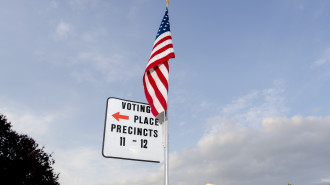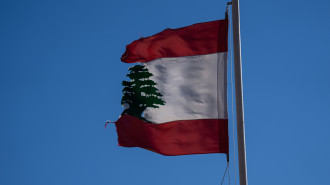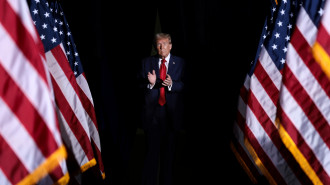
Money talks: The media and Lebanon's election coverage

Welcome to The New Arab’s coverage of Lebanon’s General Election 2022 held on May 15, 2022. Follow live updates, results, analyses, and opinion in our special hub here.
With the countdown to Lebanon's 15 May parliamentary elections in full swing, costs for candidate appearances on Lebanese TV channels have reached astronomical levels, rising as high as $100,000 for a single appearance amid the backdrop of an economic crisis which has plunged most citizens into poverty.
Two reasons have been driving the skyrocketing charges for media appearances in recent weeks; the build-up to election dates for expatriates, which occurred between 6-8 May, and the fast-approaching pre-election silence period, which prohibits political campaigning.
Al-Araby Al-Jadeed, The New Arab's Arabic-language sister publication, obtained information on prices set by some media channels, which depend on certain criteria such as the popularity of the programme, what time it airs, and the duration of the appearance.
"Costs for candidate appearances on Lebanese TV channels have reached astronomical levels, rising as high as $100,000"
Another option given by many channels is a package offer whereby a lump sum is paid in exchange for giving candidates extended coverage. For example, showing them in conversation or in one-on-one interviews.
Additionally, these packages ensure that adverts highlighting candidates' programmes run during the day or that news broadcasts include profiles on them and their activities. Parties or candidate lists can also pay for their electoral rallies and events to be broadcast live.
How much are TV channels charging?
Al Jadeed TV channel is charging $25,000 for candidates to appear on shows aired in the morning and afternoon. For its evening talk shows, costs range anywhere from $50,000 to $125,000 – depending on the time and duration of the slot.
MTV's list of prices ranges from $20,000 to over $50,000, with the higher costs charged for evening programme appearances. A source from the channel explained that costs weren’t fixed, varied depending on the candidate and the length of time given, and were usually in US dollars.
|
|
There are also free slots, those available for a nominal fee, and those which can be paid for in Lebanese lira set aside for many candidates, such as those standing as independents and those on the Forces for Change lists, who emerged from the 17 October uprising.
These slots have been set aside to support independent candidates and grant them the opportunity to introduce themselves and their programmes to the public.
LBCI, another Lebanese channel, bases its prices for TV airtime on a number of criteria, according to one LBCI employee.
"When setting prices we consider several factors: the programme or news report they will be in, what time it's on, the presenter and the curators - who also have a say in the pricing - and the amount of time they have. Prices are in dollars or in Lebanese lira and we also allocate free slots and some token amounts for candidates from the 17 October protests".
Some TV stations have also arranged for candidates to appear in popular evening entertainment shows, allowing them to take advantage of their large audiences – these slots are among the most expensive.
"Packages offer to publish reports about the candidates themselves, information showing them in a positive light, run and publish interviews and conversations with them, and, at times, go as far as attacking their competitors"
Lara Zalloum, Executive Producer at LBCI says: "LBCI adheres to what the Supervisory Commission for Elections has put in place, and works within the permitted boundaries". Zalloum highlighted that Lebanon's media channels are in a precarious state due to the economic crisis, saying, "whatever the law allows us to do, and doesn't forbid, is our legal right".
She points out that LBCI adheres to showing an 'SP' mark on the screen, indicating that a programme or advert has been paid for, which shows the station's commitment to "absolute transparency" in its work. She also says the Forces for Change have been granted significant airtime on LBCI.
Online news sites
Online news sites have also entered with force onto the electoral media scene, and have been setting expensive price lists for candidates. They are playing a major role due to the rise of digital technology and the decline of print media.
A number of news sites are offering packages for candidates, with prices starting at $1,000 and increasing depending on the type of article and which section of the website it will be published in. Candidates can pay more to have articles featured on the site's homepage, and for their articles to be boosted on other applications belonging to the site.
Likewise, these packages offer to publish reports about the candidates themselves, information showing them in a positive light, run and publish interviews and conversations with them, and at times go as far as attacking their competitors.
Elections amid a biased media
According to a study done by Maharat (a civil society group monitoring Lebanon's upcoming vote) and UNESCO about TV coverage given to the election campaigns during March, some channels gave newer groups (i.e. independent and Forces for Change candidates) an important space in their coverage while others ignored them completely.
Moreover, all stations - except LBCI - failed to indicate which content was sponsored electoral advertising, including Lebanese state TV.
According to the report, established political parties dominated media coverage during March.
"There is clear discrimination between media appearances given to independent candidates and those from the political establishment"
Candidate views
Ali Abbas, a candidate standing in Beirut II district in the Beirut the Change list, says he hasn't tried to contact any TV channels to arrange an appearance because he doesn't have the money, nor have any of the stations contacted him. He relies on conveying his message by being continuously involved in the popular struggle, fighting for the issues he supports, and using available channels, especially social media.
Hani el-Ahmadiyyeh who is standing on the same list, from Tahalof Watani (National Alliance), points out two fundamental problems which he and Beirut the Change list are facing when it comes to media coverage. The first is the close ties between the media and the established political elite, and the second is the electoral law which demands that payments be made for media appearances.
|
|
"We can set aside some money to put up posters and things like that, but it would be absurd to spend amounts starting at $10,000 to appear on TV to communicate our ideas to the public - our ideas are straightforward and easily transmitted, the change that we want is clear, and we are working hard to meet and speak directly to people".
Alan Almaddin from Citizens in a State (MMFD) says there is clear discrimination between media appearances given to candidates from the Forces for Change and those from the political establishment, but there is also discrimination between the change candidates themselves.
He points out that a lack of funds prevents MMFD candidates from doing media appearances, but hints also that there are political agendas at play. "Certain forces don't want our movement to appear on any platform," he says.
When he appeared on A Tafarruq Al Watan, a panel talk show on Al Jadeed TV, he was only given two minutes to speak and wasn't allowed to finish what he was saying. He feels there's a "systematic policy" to stop certain speakers like him, whereas others are given ample time to speak about their programmes.
"Certain forces don't want our movement to appear on any platform"
Supervisory Commission for Elections
Nadim Abdulmalak, who heads the Supervisory Commission for Elections, says: "The maximum spending permitted per candidate during the election campaigning period includes a fixed lump sum of 750 million Lebanese lira (approximately $494,560), added to an amount which is not fixed, connected to the number of voters in the electoral district he is standing in which is 50,000 lira ($33) per voter".
He says the media are obliged to present the commission with a list of prices and the slots they intend to set aside for election-related advertising, however, the commission doesn't set a limit on how much candidates can pay to appear on the channels – it is up to them to make sure they respect principles around equality of treatment when it comes to TV appearances, and adhere to recommendations the commission has made on this.
Abdulmalak explains that the commission doesn't take action unless its receives complaints, which it hasn't, although they have heard about enormous funds being paid.
"Candidates unable to make media appearances due to lack of funds can contact us and we give permission if they apply in line with our regulations, in an attempt to level the playing field as far as possible around media appearances, which is an area definitely suffering numerous violations," he says.
This is an edited translation from our Arabic edition. To read the original article click here.
Translated by Rose Chacko
This article is taken from our Arabic sister publication, Al-Araby Al Jadeed and mirrors the source's original editorial guidelines and reporting policies. Any requests for correction or comment will be forwarded to the original authors and editors.
Have questions or comments? Email us at: info@alaraby.co.uk


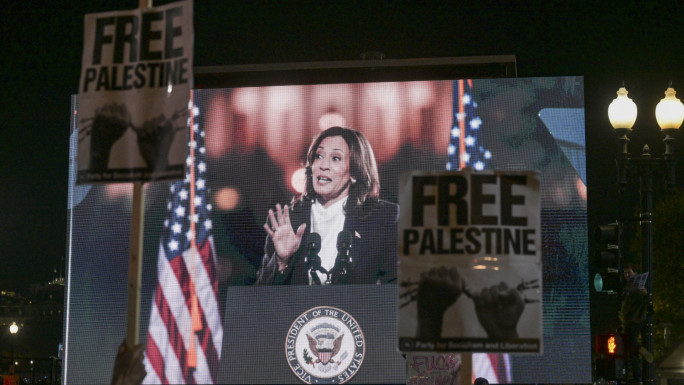
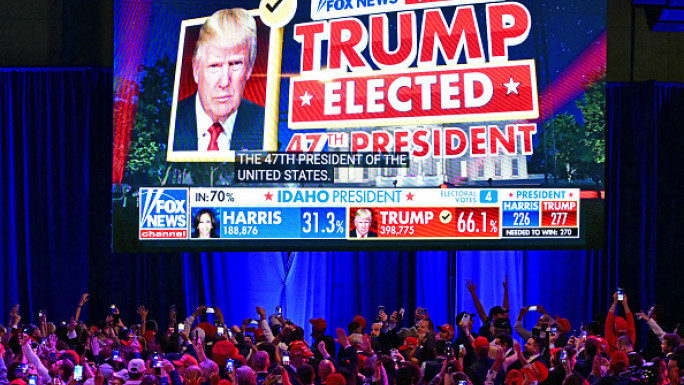
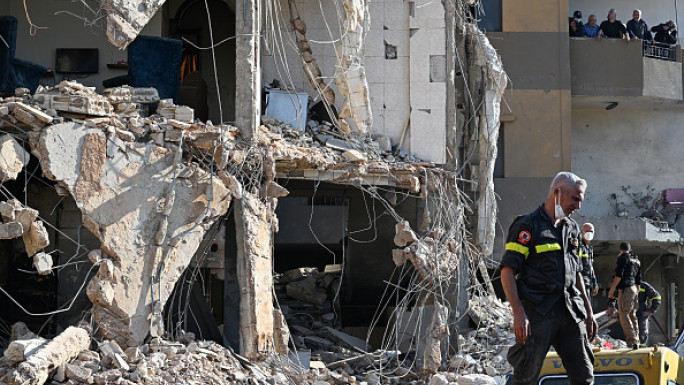
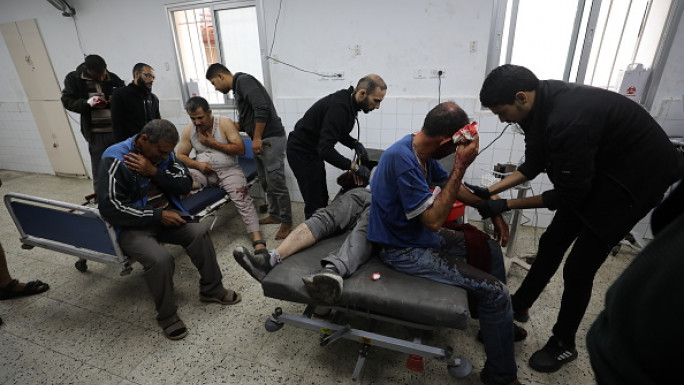
 Follow the Middle East's top stories in English at The New Arab on Google News
Follow the Middle East's top stories in English at The New Arab on Google News
